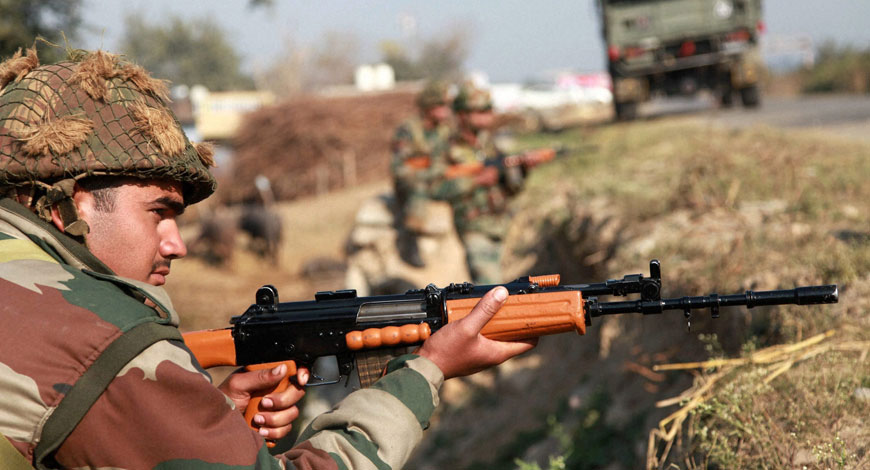India needs a coherent Pakistan policy to strengthen response by our armed forces at the tactical, operational and strategic levels.
The dastardly suicide attack by a Jaish-e-Mohammad trained Kashmiri terrorist in Pulwama that killed 40 CRPF personnel has once again made us realise the presence of a terrorist state in the neighborhood. In less than 24-hours after this gruesome attack Prime Minister Narendra Modi announced that Indian Army has been given a ‘free hand’ to decide the place and time of retribution. His announcement has been widely interpreted as a tough stance against Pakistan and a precursor of ‘big’ steps that India will take in the near future to give a befitting reply to Pakistan. However, it remains unclear how army would be able to effectively exercise a ‘free hand’, in the absence of a coherent policy to deal with our hostile neighbor that is fuelling terrorism in Kashmir?
The series of attacks by Pak-trained terrorists during the last two years and their modus operandi signifies the revival of what was taking place in the 1990s. The deadly decade of 90s saw large scale recruitment of local youths by Pakistani terror groups to be used as frontline fighters. A similar trend could be seen emerging during the last four years. However, New Delhi’s response to it remained less than what was required — in substance and in intensity. What further weakened government’s response to Pakistan’s activities in Kashmir was the incompatible alliance with PDP, which somehow managed to continue for three years and lasted till June 2018. During this period there was a spurt in infiltration across border, and ceasefire violations, attacks and terror funding continued unabated. There was a visible rise in radicalisation and local recruitment in the Valley by Pakistan based terror groups Lashkar-e-Taiba and Jaish-e-Mohammad.
A major deficiency in India’s approach towards Pakistan has been the conspicuous absence of a coherent Pakistan policy, while, our hostile neighbour has a major policy advantage when it comes to Kashmir. Pakistan’s policy towards India has been to keep India involved with low-intensity conflict in the Kashmir Valley and destabalise the region by deliberately fuelling insurgency and terrorism. Pakistan not only has a policy in place, it has also developed and activated a sinister network of terror groups to put in action this policy. For this, Islamabad has used Pakistan occupied Kashmir (PoK) as a launch pad to wage a proxy war against India. It is sustained by providing weapons and financial assistance to locally recruited terrorists and by stoking anti-India sentiments among the people through false propaganda. Pakistan’s intelligence agency ISI provides financial and other support to separatist leaders in Kashmir, to ensure they carry on anti-India propaganda in the country, thus making Kashmir valley an ideal hunting ground for pro-Pakistan outfits looking to recruit potential terrorists.
During the last four years, we could never optimally utilize our diplomatic, administrative and armed machinery for a focused policy objective towards the enemy state. From the surprise landing of PM Modi in Lahore, and allowing a Pakistani investigating team to visit the Pathankot air base to Uri terror attack and the subsequent much-hyped and politicized surgical strikes – ‘weakness’ of India’s approach towards Pakistan was glaringly visible. With the Pulwama attack India has learnt the hard lesson and it’s high time an actionable policy is put in place to deal with Pakistan at tactical, operational and strategic levels.
First and foremost India needs to strengthen its intelligence network, inter-agency coordination, as well as timeliness and credibility of its intelligence inputs. Pulwama attack is a major intelligence failure, something which India can’t afford to repeat. The policy should also spell out what to do with Pakistan during peace time and in case of a terror attack, thus an effective crisis management plan is required and Standard Operating Procedures (SOPs) be developed. Diplomatically, India needs to strengthen relations with like-minded countries on the issue of terrorism, and build pressure globally to declare Pakistan a terrorist state, as it supports international terrorism strategically and systematically. An important part of the policy should be multi-pronged engagement with Kashmiris and discrediting in a sustained manner the propaganda of separatists and pro-Pakistan activists and a section of media in Kashmir and the rest of India.
Our armed forces will be able to exercise their ‘free hand’ more swiftly and strategically, if backed by a strong policy and action plan, which will eventually ensure that India “speaks to Pakistan in the language it understood”.

